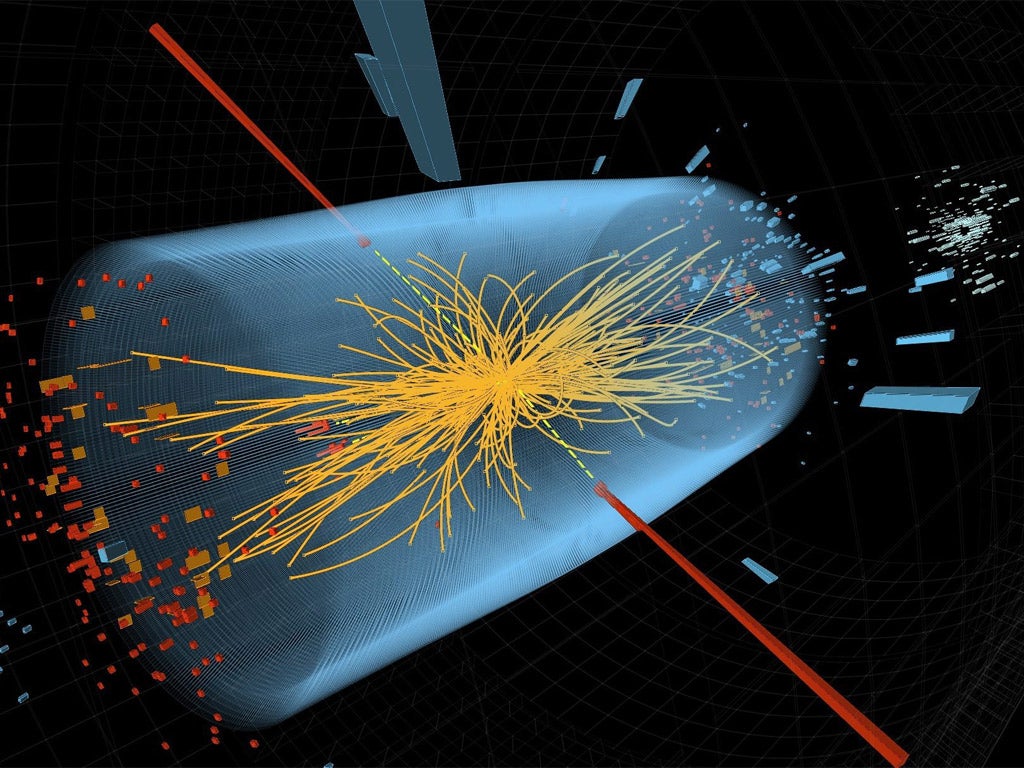Peter Higgs feared 'God particle' discovery would be exaggerated
Find earned the Edinburgh professor a share in the Nobel Prize in Physics

God particle scientist Peter Higgs has said he feared the major scientific discovery was being exaggerated to sound more important than it actually was when it was first announced to the world.
Prof Higgs, who launched the £1 million Collider exhibition at London's Science Museum today, predicted the existence of the Higgs boson in 1964.
Because of its fundamental importance in giving all other particles mass, it was dubbed the "God particle".
A particle confirmed as being a type of Higgs boson was finally detected last year by the Large Hadron Collider (LHC) - a giant atom-smashing machine near Geneva, Switzerland.
The find earned the Edinburgh professor a share in the Nobel Prize in Physics.
Prof Higgs said the public's fascination with the collider, which was roughly the same size as London Underground's Circle Line, and the God particle was something even he could not explain.
"I was quite worried at one time the importance of the discovery of this particular particle was being overplayed," he said.
"Because it was put in the background of all the other things the LHC is supposed to do and I thought it was not such a good idea.
"So, I can't really explain why it happened, but it seemed to have sparked an interest."
Prof Higgs said the collider could potentially detect dark matter, which will be its main aim when it is turned on again in 2015.
The existence of dark matter was the most pressing question in fundamental physics he wanted an answer to, he said.
Dark matter is a type of matter hypothesised to account for a large part of the mass that appears to be missing from the universe.
The Nobel laureate said it was up to scientists to explain their work more clearly for it to be better understood by the general public.
But he said education "works both ways" and a lay person would benefit by gaining a better understanding of physics.
Prof Higgs was also quick to acknowledge the work of Professor Tom Kibble, who was also involved in advancing the Higgs boson concept.
He said Prof Kibble should have been awarded the Nobel Prize alongside himself and Francois Englert.
"What he wrote in 1967... was a bridge from my very simple model of 1964," he said.
"His role was important and I think, perhaps, it's a shame that's he's been missed out."
The Collider exhibition, which opens to the public tomorrow, is set up to mimic the design of the LHC and the offices of the scientists behind the Higgs boson's discovery using a mixture of theatre, video and sound art.
It also includes real LHC artefacts, including a two-tonne part of the 15m high magnets that steer the particle beams at almost the speed of light and a crystal that measures the particles' energy.
Renowned scientist Stephen Hawking will also give a speech at the launch this afternoon.
PA
Join our commenting forum
Join thought-provoking conversations, follow other Independent readers and see their replies
Comments